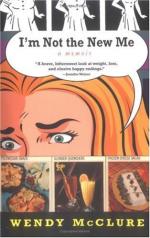husband planted this.” Outside the little
green door, on either hand, were stone benches set
against the wall, on which the painter’s children
sometimes sat and played; but it is somewhat strange
that I never remember Millet at his door or on the
village street. He walked a great deal, but always
went out of the garden to the fields back of the house,
and from there gained the forest or the plain.
Among the young painters who frequented Barbizon in
those days (which were, however, long after the time
when the men of Millet’s age established themselves
there), there were, strange as it may seem, few who
cared for Millet’s work, and many who knew little
or nothing of it. The prejudices of the average
art student are many and indurated. His horizon
is apt to be bounded by his master’s work or
the last Salon success, and as Millet had no pupils,
and had ceased to exhibit at the Salon, he was little
known to most of the youths who, as I look back, must
have made Barbizon a most undesirable place for a
quiet family to live in. An accident which made
me acquainted with Millet’s eldest son, a painter
of talent, seemed for a time to bring me no nearer
to knowing the father until one day some remark of
mine which showed at least a sincere admiration for
his work made the son suggest that I should come and
see a recently completed picture.
If the crowd of young painters who frequented the
village were indifferent to Millet, such was not the
case with people from other places. The “personally
conducted” were then newly invented, and I have
seen a wagon load of tourists, who had been driven
to different points in the forest, draw up before
Millet’s modest door and express indignation
in a variety of languages when they were refused admittance.
There were many in those days who tried with little
or no excuse to break in on the work of a man whose
working days were already counted, and who was seldom
free from his old enemy migraine. I was
to learn this when—I hope after having
had the grace to make it plain that, though I greatly
desired to know Millet, I felt no desire to intrude—the
son had arranged for a day when, at last, I was admitted
to the studio.
Millet did not make his appearance at once; and when
he came, and the son had said a few kindly words of
presentation, he seemed so evidently in pain that
I managed, in a French which must have been distinguished
by a pure New York accent and a vocabulary more than
limited, to express a fear that he was suffering,
and suggested that my visit had better be deferred.
“No, it will pass,” was his answer; and
going to his easel he placed, with the help of his
son, picture after picture, for my delectation.




